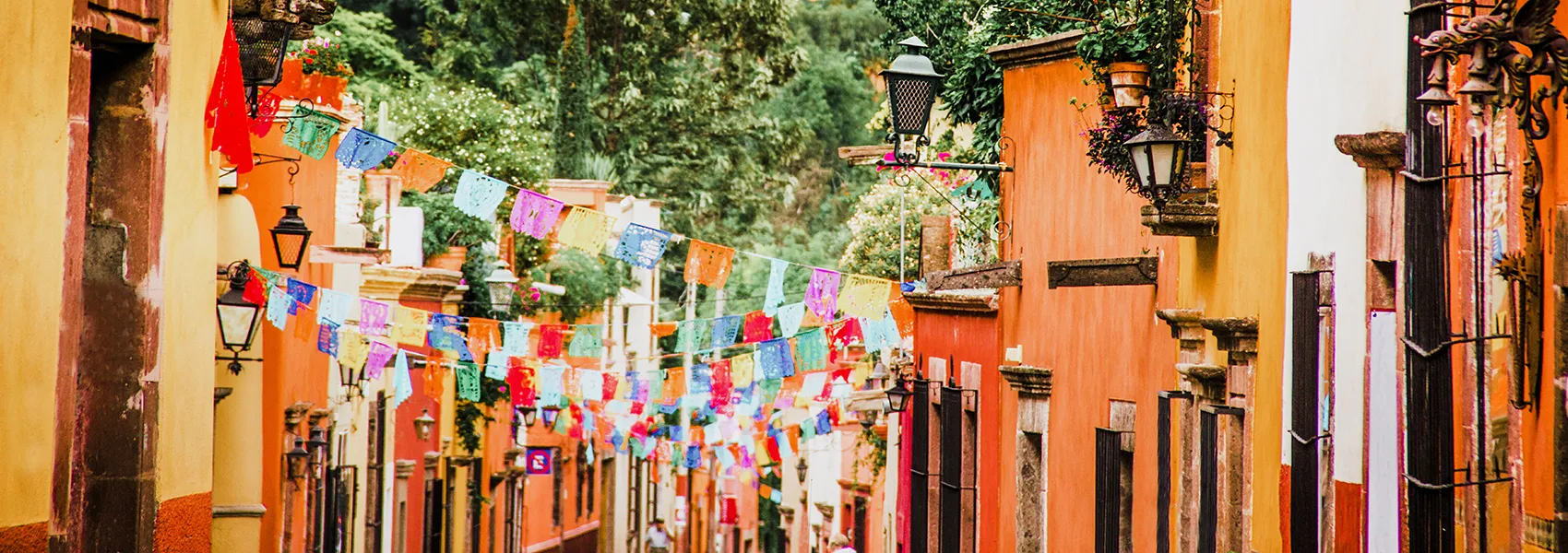
Published 19th Jan. 2022
Reading time
Every country and culture has its own rituals and traditions, and while these practices may be commonplace to locals, they often sound wonderfully wacky to outsiders. This is part of the fun of travelling. Fully immersing yourself in the customs of another country is arguably one of the best educations you could ask for. At Original Travel, we love finding ways of incorporating local life into our travel itineraries, so we’ve made a list of some of our favourite wonderful and wacky traditions from around the world to look out for if you’re in search of some holiday entertainment…
La Tomatina, which involves tossing tomatoes at one another as part of an annual festival, has become a fairly well-known Spanish custom. El Colacho, on the other hand, is a lesser-known (and slightly more risky-sounding) tradition that takes place in northern Spain; babies are laid on mattresses on the street, while participants wearing devil costumes run along and leap over them. The tradition is thought to keep the devil at bay and has taken place for over 400 years without incident, putting any concerns about safety to rest.
Another Spanish tradition, which is also practiced in parts of Latin America, involves the symbolic burial of a sardine sculpture along with a funeral procession to mark the occasion. This indicates the end of the annual carnival on Ash Wednesday and the beginning of Lent, with the fish funeral signifying the burial of the past and the rebirth of society with renewed vigour. It’s unclear where the custom originates from, although one theory suggests that it started in the 1700s during the reign of King Charles III, who distributed fish as a gift during lent – the sardines went bad and were subsequently buried, kickstarting the tradition.
Scrambled eggs are a key ingredient of a full English breakfast here in the UK, and serving the dish on a Sunday morning is a popular tradition (especially as a hangover cure). However, in Bosnia they are eaten to mark the start of the spring season, as part of a festival known as Čimburijada. The day begins with a sizeable plate of scrambled eggs, cooked and eaten in a city park, followed by an afternoon of partying, barbequing and swimming in the nearby river.
La Mordida is another food-based tradition, although one that involves being covered in food, rather than eating it. The Mexican birthday custom involves pushing the birthday girl or boy’s face into the thick creamy icing of the cake when they go to take the first bite. Meanwhile, the rest of the party guests chant ‘¡Mordida!’ (Spanish for ‘bite’). The origins of the tradition are unknown, however it remains an enduring Mexican birthday tradition, along with the smashing of piñatas and morning serenade of the song ‘Las Mañanitas’.
Sticking with the theme of birthday traditions, it’s commonplace to be covered in cinnamon if you’re single on your 25th birthday in Denmark. Legend has it that the tradition dates back to the 16th century, when Scandinavian spice salesmen were too dedicated to their trade to find a potential partner and get married. Today, 25-year-olds are tied to a chair or lamp post, while their friends cover them in copious amounts of cinnamon as a celebration of their single status.
A tradition that honours marriage, Polterabend translates to ‘wedding shower’, and takes place the day before the ceremony. The wedding party gather outside to smash various objects, including tiles, pots, plates and crockery – the louder the noise, the better, as this is thought to bring good luck to the newly-weds (glass and mirrors are avoided, as they’re known for bringing the opposite). The bride and groom are then tasked with the clean-up, as a means of preparing them for the teamwork required within married life.
Written by Luisa Watts
Practical advice and inspiration for your next trip

As Tom Holland (the esteemed historian, not Spiderman) so succinctly put it in the first edition of our magazine, Original Traveller, ‘Egypt is where tourism began’. And the next chapter in the history of tourism in Egypt is about to begin. We’re always looking for a reason to shout about this captivating country, and this November, we have the perfect excuse: the long-awaited opening of the Grand Egyptian Museum (GEM).
3rd November 2025 - Egypt Culture

Everyday life can be chaotic. Our favourite antidote? Escaping to one of the silent and sacred corners of the world. Whether hiking mystical mountains or observing ancient rituals, spiritual holidays offer a chance to reconnect and slow down. From the cloud-kissing monasteries of Meteora to the heart of Mexico’s Maya culture, read on to discover our favourite spiritual escapes around the world... Meteora monasteries, Greece Himalayas, India Yucatan Peninsula, Mexico Nairobi and Laikipia, Kenya Meteora monasteries, Greece Best for:
24th July 2025 - Culture

Any trip to Fes should include a day out to the Roman ruins of Volubilis, probably the largest and best-preserved ruins in Morocco. With scenery reminiscent of Russell Crowe’s homecoming in ‘Gladiator’ (more for the surrounding countryside than for the grisly welcome he got), Volubilis is a must-see for history buffs and lovers of picturesque vistas alike. Find out why you should visit in our Volubilis guide… 1.
23rd April 2025 - Morocco Culture

Our team of destination experts will get to know you and your unique requirements for your holiday

We work with you to build an ultra-personalised holiday itinerary with your choice of accommodation, experiences and activities

All of our holidays include little extras designed to make a big difference to your trip, from fast-tracking you through airport check-in and security to our network of local Concierges